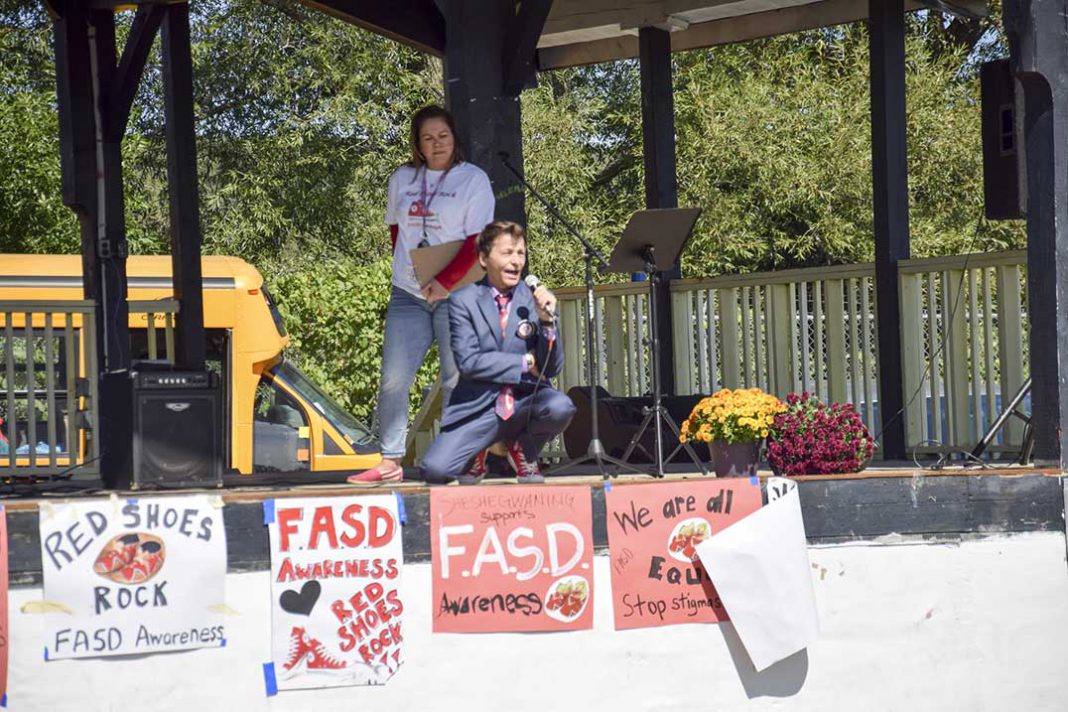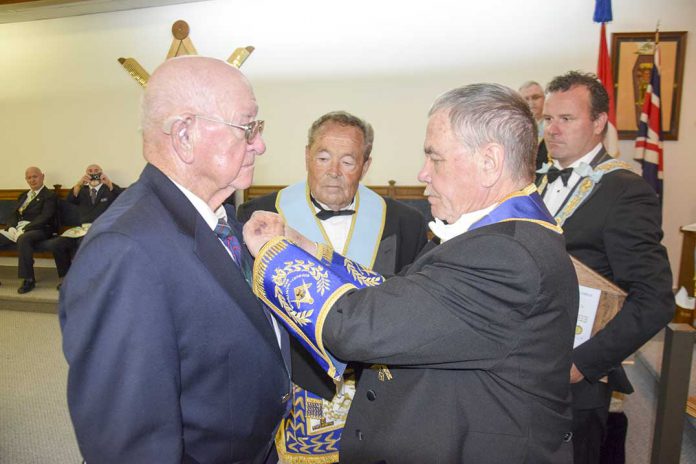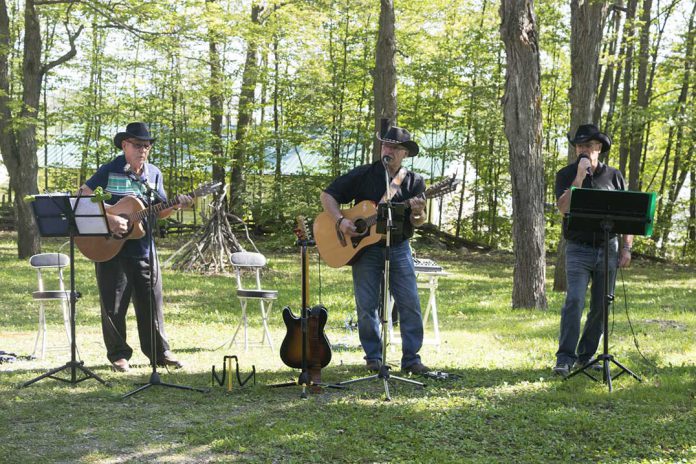WIIKWEMKOONG—When at age 47 BJ Formanek first learned that he was diagnosed with fetal alcohol spectrum disorder (FASD), it came as something of a relief to put a finger on why his world was so different to that of those around him—but when he asked the question “now what?” the silence that greeted him was deafening.
“There was no ‘now what’,” he recalled. When he was diagnosed, there was no path of treatment, no coping stratagems to adopt and most definitely no services available to help him deal with his condition.
Mr. Formanek discussed his experiences with FASD and how he found his own path forward in life during a keynote address to the ‘Stomping out the Stigma’ conference held September 9 at Wiikwemkoong’s Thunderbird Park.
The day’s events included banner making, a community Red Shoes Rock Walk, a community barbecue and live music but it was Mr. Formanek’s talk that held those in attendance spellbound.
Mr. Formanek’s struggles with the consequences of FASD were related with great humour and pathos but his experiences would be very familiar to anyone struggling with the disorder.
Among those experiences is dealing with the stigma that is still attached to FASD, often very unfairly, considering the reality of advice coming from the medical community that is still not as uncommon as it should be.
“My own 16-year-old daughter was told by her doctor that ‘oh a glass of wine a night isn’t so bad’,” said Mr. Formanek. But that advice flies heavily in the face of what we now know about alcohol consumption and pregnancy. How many mothers-in-law would still suggest that a beer a day helps build a mother’s milk? “As a truck driver, I had to requalify every five years,” noted Mr. Formanek. “Doctors don’t have any such requirement.”
Melanie Francis, who until very recently was the FASD worker at Noojmowin Teg, organized the event over the past few months. She noted how few of her clients even knew that they were pregnant until they were entering their second trimester.
FASD and Canadian Prenatal Nutrition worker Amanda Mishibinijima said that she believes that there are many conversations that need to happen, despite their taboo subject matter. “We need to be talking about contraception,” she said. “We need to have these conversations in the community.”
FASD tends to be an invisible affliction and, as the term ‘spectrum’ suggests, it manifests itself in different ways in different.
“The facial features that are associated with some come about in the first 17 to 21 days of a pregnancy,” said Ms. Francis. “The majority of the time it is the brain that is affected.”
The result is that many of those impacted with FASD “look fine to me.” Because the condition is invisible, those who have it are labelled “difficult” or “troublemakers,” and not individuals who are in need of special help or services. When the issue is physiological, how does telling someone to ‘sit still’ help?
“Someone with FASD might be 16, but have the mental capacity of someone who is 10,” said Ms. Francis. “So when they are told ‘why don’t you act your age?’ how does that help anyone?”
Mr. Formanek noted the divisions and conflict that FASD can bring to a family but he advised everyone to just let it go. “I love my mom,” he said. “I can’t tell what her circumstances were when she was having me. She is dead now but there is no room in my life for ‘blame and shame’.”
The invisibility of FASD goes far beyond physical appearances. “Because I speak well, people assume I can catch a bus,” said Mr. Formanek. “If I don’t have my partner with me, I still can’t catch a bus to save my life. I just can’t seem to do it. Luckily, I have support.”
The isolation of FASD was the worst part of the condition, noted Mr. Formanek. “I went to Czechoslovakia,” he said. “I didn’t speak a word of the language. They didn’t understand me. I realized that nothing had changed. Back home in Canada they didn’t understand me either.”
Mr. Formanek set up an incredibly successful Facebook site ‘Flying With Broken Wings’ to help support those dealing with FASD and it has gone a tremendous way toward breaking down that isolation. The site currently has 4,621 members.





